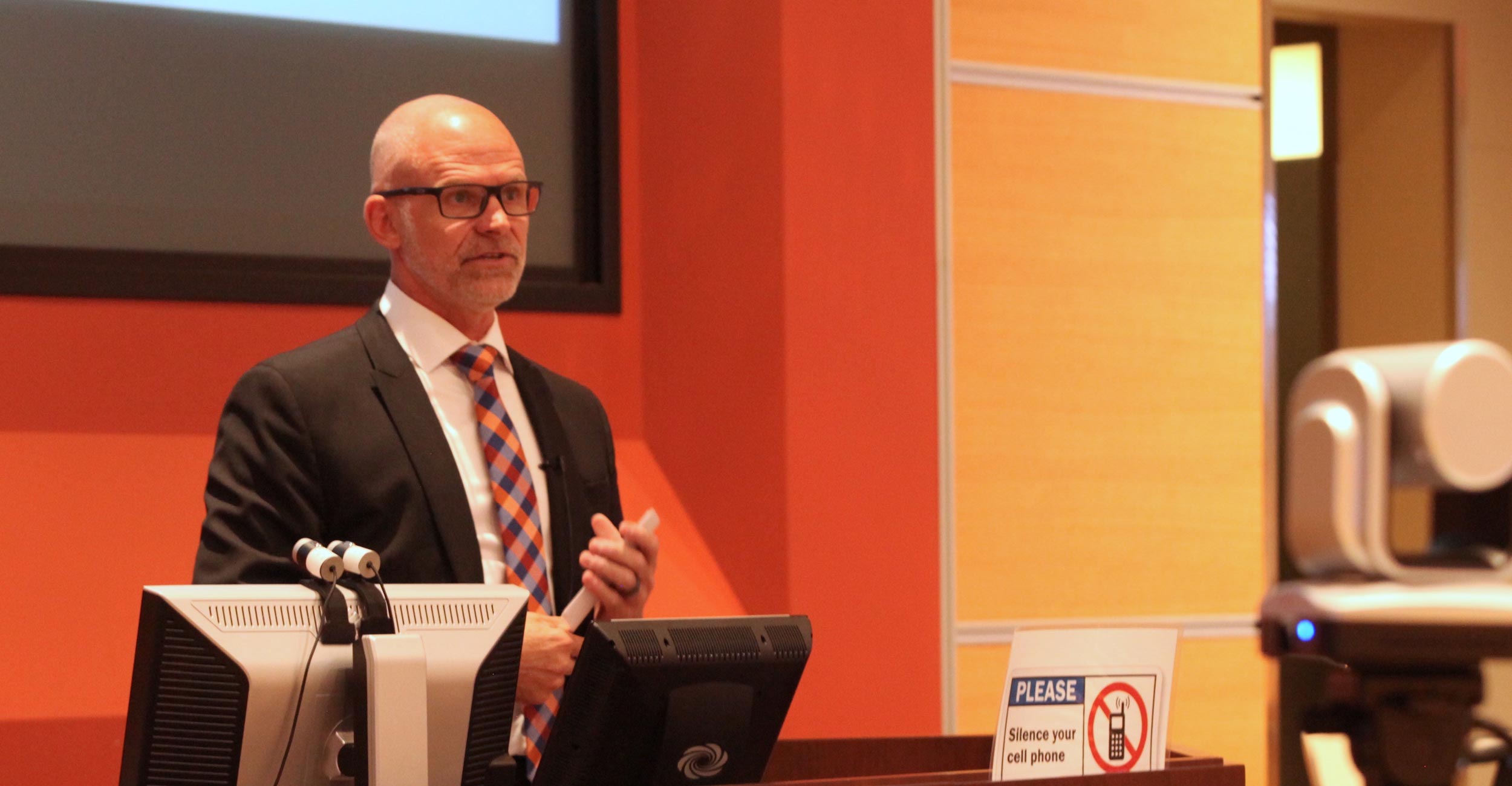
Thursday, October 26, 2023
Media Contact:
Mack Burke | Associate Director of Media Relations | 405-744-5540 | [email protected]
An often overlooked factor has the potential to boost businesses’ bottom line: employee
fitness.
Lance Walker, who leads Oklahoma State University’s Human Performance and Nutrition
Research Institute as the inaugural Rick and Gail Muncrief Executive Director, spoke
Tuesday at a workshop on obesity, current and future treatments and how employers
can help motivate their employees to live a more healthy lifestyle.
Walker was one of four panelists featured at the “Weight Wellness at Work — What Employers
Need to Know About Obesity Treatment” workshop hosted by the Oklahoma Business Collective
of Health at the Helmerich Research Center on the OSU-Tulsa campus.
“It’s scary to think that one in three Oklahomans are pre-diabetic,” Walker said.
“It’s projected by 2030, Oklahoma will be ranked No. 1 in obesity in the United States.
Number one in the wrong category.”
Walker is a licensed physical therapist with more than 30 years of experience in performance
training and sports medicine. With a vision to address health outcomes in Oklahoma,
Walker has led HPNRI since its creation in 2022. The institute, which operates under
the umbrella of The Innovation Foundation at Oklahoma State University, is utilizing research to establish the groundwork for developing preventative therapeutic
strategies to combat obesity and other chronic diseases. Its focus areas include nutrition,
recovery, cognitive performance, chronic disease prevention, non-pharmaceutical disease
management and therapeutic compliance.
“I’m a third-generation Okie,” he said. “It’s why I came back to Oklahoma. This is
personal for me. I want to leverage my 30 years of experience to eradicate disease.
How? We’re going to do it through the lens of performance.”
In addition to looking at the causes, outcomes and treatments of obesity, health care
providers and employers need to look at what will motivate people to live healthier
lives, Walker said.
“I’ve worked with athletes across all sports, across all ages and across all skill
levels. Some people think elite athletes are these wonderful, motivated, unbelievable
machines that just wake up and they’re motivated to do something, but they’re wrong,”
he said. “I’ve worked with the best in the world. They require things to be motivated.
They are no different than the rest of us in that regard. Trust me when I say motivation
is a challenge for everyone from Usain Bolt to me.”
Walker said by studying high-performing individuals — their motivations, their diet,
their sleep patterns, etc., — researchers and health professionals can take a data-driven,
positive approach to addressing obesity and other chronic diseases.
“We’re going to transform health through performance science,” he said. “Success leaves
clues. High-performing individuals, high-performing groups, high-performing teams,
high-performing companies, they leave clues, and we can learn from those clues.”
When HPNRI was established, it received $50 million in ARPA funding through the State
of Oklahoma, an investment that should pay dividends as 25% of all health care dollars
are currently spent on treatments for diseases or disabilities linked to changeable
behaviors. The economic benefits of healthy eating are estimated to be $114.5 billion
a year.
“The state is in need of more resources in practical and research-supported solutions
that can trigger and fuel generational and transformational change in health outcomes,”
Walker said. “The vision of elevating the human performance and nutrition of the state
of Oklahoma transcends any individual or entity.”
